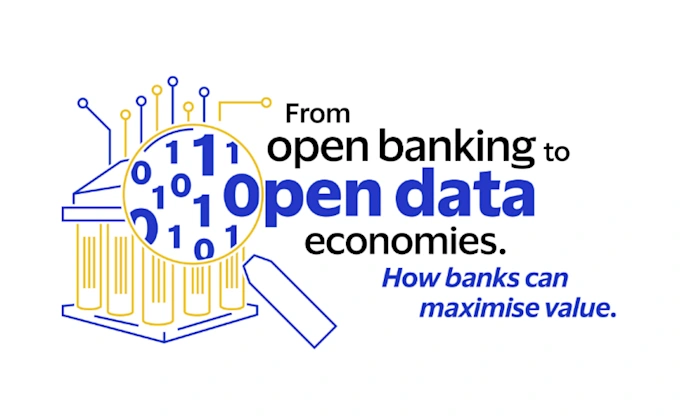European Commission introduces PSD3/PSR to advance open banking and strengthen consumer protection

The European Commission has published its draft legislation for the next phase of financial services in the EU. The third Payment Services Directive (PSD3) will be coupled with a new Payment Services Regulation (PSR) to build on the progress made since PSD2’s introduction. Below, we hear from Tink’s Head of Industry & Wallets, Jan van Vonno, on this key regulatory update.
The European Commission has published draft legislation for the third Payment Services Directive (PSD3) and a new Payment Services Regulation (PSR) to build on the progress made since PSD2.
PSD3/PSR aim to drive further development in open banking, as well as addressing issues like API quality.
Tink’s Head of Industry & Wallets, Jan van Vonno, said: “We are encouraged by many aspects of the new proposals, such as the benefits in giving authorities the required tools to better evaluate the dedicated interfaces (APIs) provided by banks and other financial institutions.”
Reflecting on the five years of PSD2, there are plenty of positives to be taken from the progress that’s been made.
From Tink’s point of view, open banking has clearly been a major part of PSD2 in the European Union. By enabling authorised payment service providers to initiate electronic payments and aggregate payment account information, platforms like Tink can provide data-driven services which benefit both financial institutions and end-users. Creating faster processes that reduce costs, alongside better user experiences and more personalised services.
PSD2 has also increased consumer protection by mandating the implementation of Strong Customer Authentication (SCA) for certain actions. This means users are required to provide two or more elements of authentication, helping to reduce fraud.
“PSD2 was a milestone in payments regulations recognised all over the world," said Jan. "By embracing the innovation that Tink and other fintechs were taking to market, the EU took a major step forward in creating a single market for payments and embracing more competition for financial services.”
However, progress has arguably not been as quick as many had hoped, so the renewed drive that PSD3/PSR provides is a welcome addition to the development of open banking in Europe.
In terms of timelines, in the best case scenario, we would see the PSD3/PSR files passed before the summer of 2024 with enforcement happening by the end of 2025. However, it is more likely that the European elections will delay the process, which as a result means that the proposals won’t be resolved until Q1 2025 and enforced by mid-2026. Timelines for directives can also be longer as they are often subject to delays during the national implementation by individual member states.
“We are encouraged by many aspects of the new proposals improving open banking, such as the benefits in giving authorities the required tools to better evaluate the dedicated interfaces (APIs) provided by banks and other financial institutions,” added Jan.
“To this end, we hope that the PSR in particular, will resolve much of the controversy surrounding API quality that is present in the relevant Regulatory Technical Standards (RTS) under PSD2.”
Many open banking rules and conditions from the European Banking Authority’s (EBA) current RTS will be moved to the PSR. The new PSR will also be complemented by:
A list of obstacles that must be removed from all regulated APIs
An obligation for banks to build permission dashboards to allow customers to see which third-party services are connected to their payment accounts
Sanctions that authorities can take when encountering infringements of the regulation
If the package is adopted in its current form, the EBA will be tasked with creating new technical requirements for regulated APIs.
Beyond the specifications surrounding APIs, the PSR also introduces strict conditions for the use of a fallback by third-party providers (TPPs), i.e. the use of the customer interface when APIs don’t perform as required. In theory, there would be no need for a contingency if banks meet all of the requirements outlined in the PSR and the new texts give authorities the ability to impose administrative fines if needed.
Looking ahead
As with any significant regulatory updates, there will be competing interests and many conflicting opinions. At Tink, we strongly believe in a fair, competitive, and open marketplace where banks, fintechs, and TPPs can increase choice for businesses and consumers and change financial services for the better.
We remain in discussions with many stakeholders across the industry and of course we are still very early in the PSD3/PSR journey. It’s exciting to help shape the future of finance in Europe – now as part of Visa.
As always, we are happy to discuss regulation and help our prospects and customers navigate where things are going, so please reach out to us if you have questions.
More in Open banking

2024-07-22
1 min read
Commercialising open finance – a VCA report
Tink worked with Visa Consulting and Analytics on a new white paper which details the state of play, direction of travel, and best open finance practices from around the world.
Read more

2024-04-08
6 min read
How the Instant Payments Regulation will change the EU payments landscape
We explore the details of the Instant Payments Regulation, as well as its benefits for consumers and PSPs – such as increased convenience, more innovation in the market, and reduced costs.
Read more

2024-03-07
6 min read
Smart moves with smart meters: how commercial VRP could support pay-as-you-use billing models
Discover how variable recurring payments can transform smart meter billing into a more flexible user experience – and utility providers more ways to support financially vulnerable customers.
Read more
Get started with Tink
Contact our team to learn more about what we can help you build – or create an account to get started right away.
